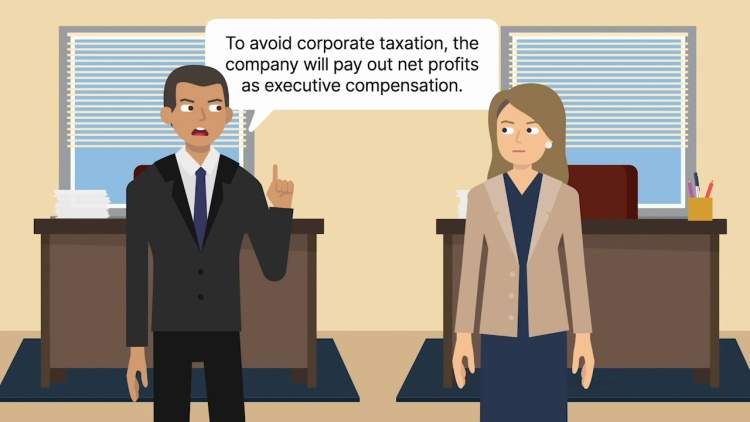Wilderman v. Wilderman
Court of Chancery of Delaware
315 A.2d 610 (1974)
- Written by Mary Pfotenhauer, JD
Facts
Eleanor Wilderman (plaintiff) is a director of Marble Craft Company, with a one-half interest in the corporation’s stock. Joseph Wilderman (defendant) is Marble Craft’s other director, and its president. Mr. Wilderman is also Mrs. Wilderman’s ex-husband. By April of 1971, after their separation, the two directors were deadlocked on the issue of what compensation to pay to Mr. Wilderman, and could not agree to authorize any amount above $400 per week, or $20,800 per year. In 1971, in addition to his authorized salary of $20,800, Mr. Wilderman paid to himself a bonus of $71,738.71. In 1972 Mr. Wilderman paid himself $35,000. In 1973, Mr. Wilderman paid himself a total sum of $86,893.40. During this same period Mrs. Wilderman received $7,800 per year. Mrs. Wilderman brought suit against Mr. Wilderman, claiming that in fiscal years 1971, 1972, and 1973 Mr. Wilderman caused excessive and unauthorized payments to be made to himself from the corporation’s earnings. Mrs. Wilderman sought to have the excess payments returned to the corporate treasury and distributed as dividends. At trial, a financial expert testified that reasonable compensation for Mr. Wilderman would have been between $25,000 and $35,000 per year, and evidence was submitted showing that the Internal Revenue Service (IRS) intended to permit only a $52,000 deduction for Mr. Wilderman’s $92,538 compensation in 1971.
Rule of Law
Issue
Holding and Reasoning (Marvel, V.C.)
What to do next…
Here's why 911,000 law students have relied on our case briefs:
- Written by law professors and practitioners, not other law students. 47,100 briefs, keyed to 997 casebooks. Top-notch customer support.
- The right amount of information, includes the facts, issues, rule of law, holding and reasoning, and any concurrences and dissents.
- Access in your classes, works on your mobile and tablet. Massive library of related video lessons and high quality multiple-choice questions.
- Easy to use, uniform format for every case brief. Written in plain English, not in legalese. Our briefs summarize and simplify; they don’t just repeat the court’s language.





